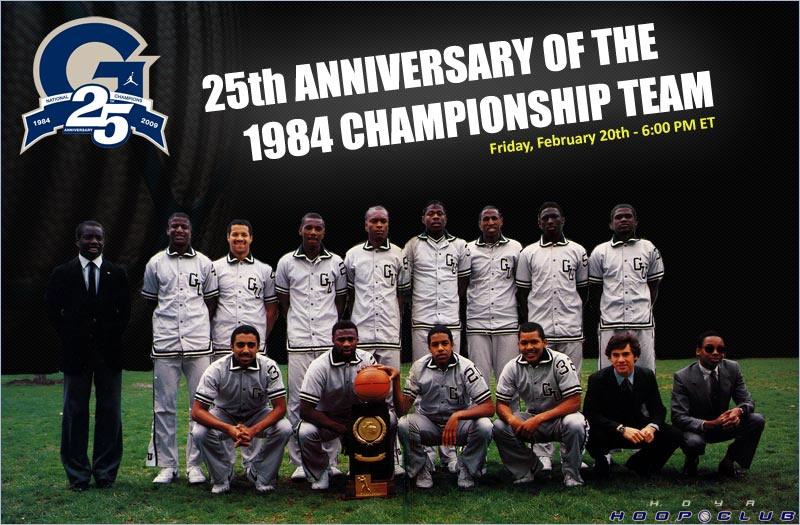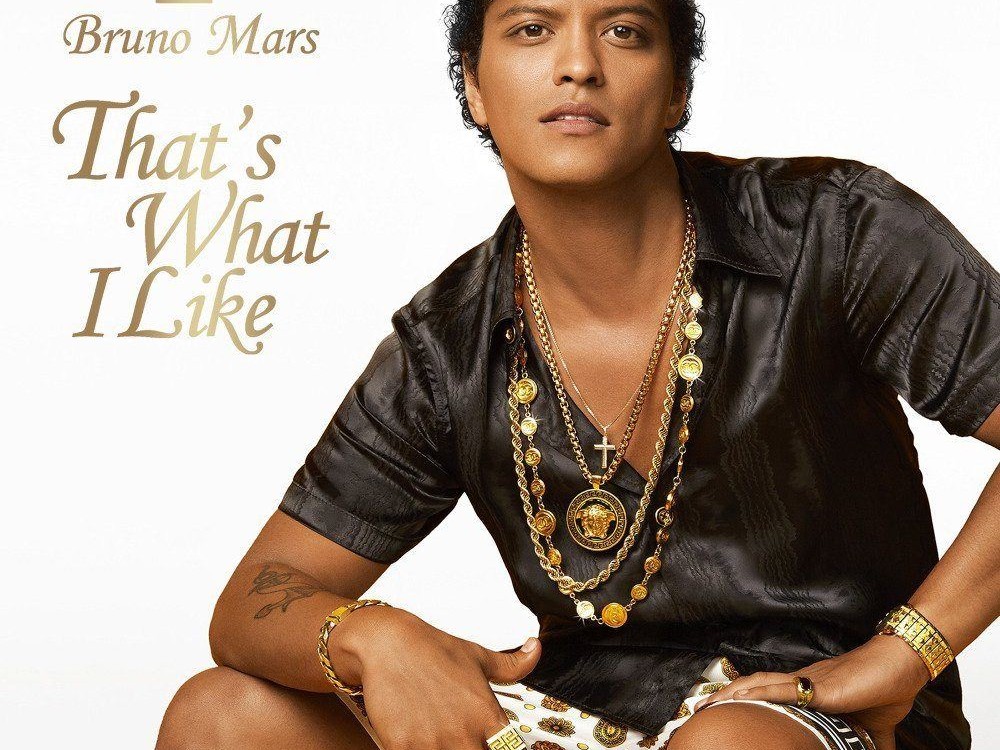Alley Oop
Man oh Manischewitz, I’ve been holding on to this one for about a week. Now you may be saying to yourself why is there a picture of the 1983-1984 Georgetown Hoyas? Well, they were national champions that year. They were a team that worked together toward a common goal. But as it is also apparently clear the team was also comprised of 12 individuals. A team yes, but comprised of individuals who while sharing similarities in race and ethnicity, athletic acumen, are all at once different because they are individuals who come together to make a team. Before I shift gears a little bit I’d like to pose a quick question. Would any members of this championship team have been recruited and offered a scholarship if they had not excelled at the high school level in their individual accomplishments? Put another way, is there any evidence that a player who’s not a stand out(individual)at any level getting promoted to the next? I’m talking overarching evidence in this area, not outliers that we know sometimes exist.
Why all this talk about basketball and teams on a music site? Well to be Frank(even though my name is Ivan)I’m tired, like really tired and I’m sure some of you reading this(all three of you, who we really and truly appreciate!)are tired too. What are we collectively tired of? We’re tired of the wide sweeping “We” when it comes to claims on culture. If we’re(see what I did there lol) really being honest about it when it comes to music you’re talking about a very, very, very small group of people who are like the team above a group of individuals and in this case I’m not sure how common we can say the musical goals are. But first I think I need to take a step back and identify what I’m really talking about here: culture.
Cultura
Ahh culture, with its concomitant phrase Du jour “For the culture…”
So let’s examine culture for a moment by considering two of its meanings.
“the behaviors and beliefs characteristic of a particular social, ethnic, or age group:”
“that which is excellent in the arts, manners, etc.”
So for the purpose of this screed, we are discussing the behaviors and beliefs characteristic of Black Americans and how that determines, influences and ultimately creates that which is excellent in the arts(specifically for our purposes: music). Now as you can see there are already problems, lots of them. In fact, I’m just going to say off the top that I will not be able to address all of the underlying issues here in this amalgam of a defintion but please feel free to keep the discussion going both on and offline.
Let’s begin at the beginning. “The behaviors and beliefs characteristic of Black Americans” full stop. We are not monolithic(there’s that individual thingy showing up again). However for the purposes of this discussion, we are talking about surface level pop culture ideals. Pop which of course is short for popular which I hate to point out is just that: Popular. Am I suggesting that everything that is popular is bad? No, I’m not but I am suggesting that perhaps things that are in the popular sphere serve at the will and pleasure of the culture of popularity perhaps more than the identified culture from which the idea sprang from. That last sentence I wrote is problematic. Yes I know I wrote it and I have a problem with what I wrote because after reading it back I’m doing that thing. What thing? You know that thing where you just automatically repeat popular(that word again are you noticing a theme)parlance without critical analysis.
So if I were to say Black Culture what exactly does that mean? Clearly, we know that it is a constantly evolving set of ideals. We also know that unlike many cultures around the world who have had terra firma cultural practices in place for hundreds if not thousands of years, Black American Culture has been largely a victim of circumstance. Now that’s not a woe is us proposition, however here’s where the rubber meets the road for me and it is a question that I’m currently grappling with. It’s almost a chicken/egg conundrum. When we consider Black Creativity in these here United States as it relates to music, specifically popular music(that’s what this discussion is focusing on) does the music spring forth from the culture or is it simply a matter of the culture being magnified through the aid of market forces that work in concert with that which they(the market initially, then cultural members)deem musical excellence?
Now you should know that there’s an entire spectrum of what constitutes excellence as it relates to music. You should also know(because we’ve discussed it ad-nauseum here)that some music is popular but probably not that great and there’s some great music that’s not that popular and then the rare bird that is both great musically and popular. I will also state for the record that the rare bird of being popular, musically excellent is mainly a phenomenon of the past because the world we live in there is far too much access to all kinds of music for there to be ubiquity. Yes, I lived through Thriller, Purple Rain and The Bodyguard Soundtrack where literally you could find generations of families, hell whole communities of folks across generations all having the same cultural references. Those are but three examples of musical integrity and popularity lining up. There are many, many more. But nowadays… it’s tough. Now everyone has a device to watch and listen to what they want. When I was a kid, whatever my parents played on the radio or if they popped in an 8-track that’s what I was listening to. Everything must change. Of course, every now and then something will break through musically and become ubiquitous and quite often when the view is that the individual is not of the culture and is borrowing from the culture it can be a source of contention.
Square Biz
Here at GFM we spoke about the kerfuffle that Bruno Mars has been causing with some folks a while back here. You might want to pause this one and check that out if you haven’t already. Back to the lecture at hand… I hope that it has been readily apparent that whereas I acknowledge the importance of culture and I’ve made it a lifelong endeavor to study her, I also understand the determination of an individual’s will. To be quite honest I put a lot more weight on the contributions of an individual(or a group of individuals working together)than I do an overarching idea of culture as a determinator of greatness and relevancy. Why? Because if we think about it music(when you’re doing it right) is a very singular type of proposition. You have to put in the work. Often alone. Learning and practicing your(emphasis on your) craft. Here’s a little example of that: Miles, Marvin, Prince, Whitney, Coltrane, Ellington, Basie, MJ… we could just keep going. One name whether it be first or last or even a nickname – singular, an individual. An individual aligned with a culture? Perhaps, but you might have to ask the individual. Trust me it feels good, actually it feels great to be on a winning team. But let’s be honest if we’re going to be a big tent and the only consideration for being under said tent is that you have the complexion for the connection then we have to allow and embrace not just the greatest of these among us. Wouldn’t that be hypocritical? I mean if we take it all the way back to the top, that 1984 Georgetown Team didn’t have 12 guys named Patrick Ewing. So if you’re going to claim the greatness of Prince how can you discredit the Princesque appropriation of a Georgio if they are both seemingly emanating from the same culture? I’ve got news for you: You can and you should. Everyone should like or love whatever they choose based on their own personal standards. Will we(Big Tent) agree on some things? Absolutely! Will we(Big Tent) disagree on some things? Absolutely!
The Lake Is Open For Purification
What I hope that I’ve been able to get across in these few words is the importance of being an individual and understanding the importance of individuality. To coin a phrase “That’s what Grown Folks do”. Certainly we all have the right and free will to adhere allegiance to whatever movement, idea or institution we want to in life. More and more I’m learning the importance of having and using your(own)voice. That’s a singular notion, made up of ideas and experiences from everywhere. Many of my friends know that often when the conversation turns to cultural appropriation of any kind my response is to question the motives of people who doth protest much. The reason I do is because the protestation usually begins with the declaration that We(Black Culture)created this and that and Mr. or Mrs. Cultural Appropriator stole this or that from us. Where my mind often wanders to is the fact that Black Culture didn’t write “Purple Rain”(I’m not suggesting Black Culture didn’t inform “Purple Rain”)but the degree to which an individual culture informs an individual piece of art is based on the individual artist. That’s a fact that we cannot deny. The other glaring fact that we cannot deny is the work done by an individual artist. “Purple Rain” was written and composed by Prince Rogers Nelson, not me, not you, not Black Culture in other words there’s no “We” listed in the credits simply because there’s no “We” in “I”.
Ivan Orr is a multi-instrumentalist, composer, performer, and writer. A native of Charlottesville, Virginia Ivan was involved with the forming and nascent days of The Music Resource Center as its first Program Director. A graduate of Virginia Commonwealth University’s Department of Music, Ivan currently resides in Richmond, VA where he maintains an active performance and production schedule while serving as the Music Editor for Grown Folks Music, a position he has held since 2010.







